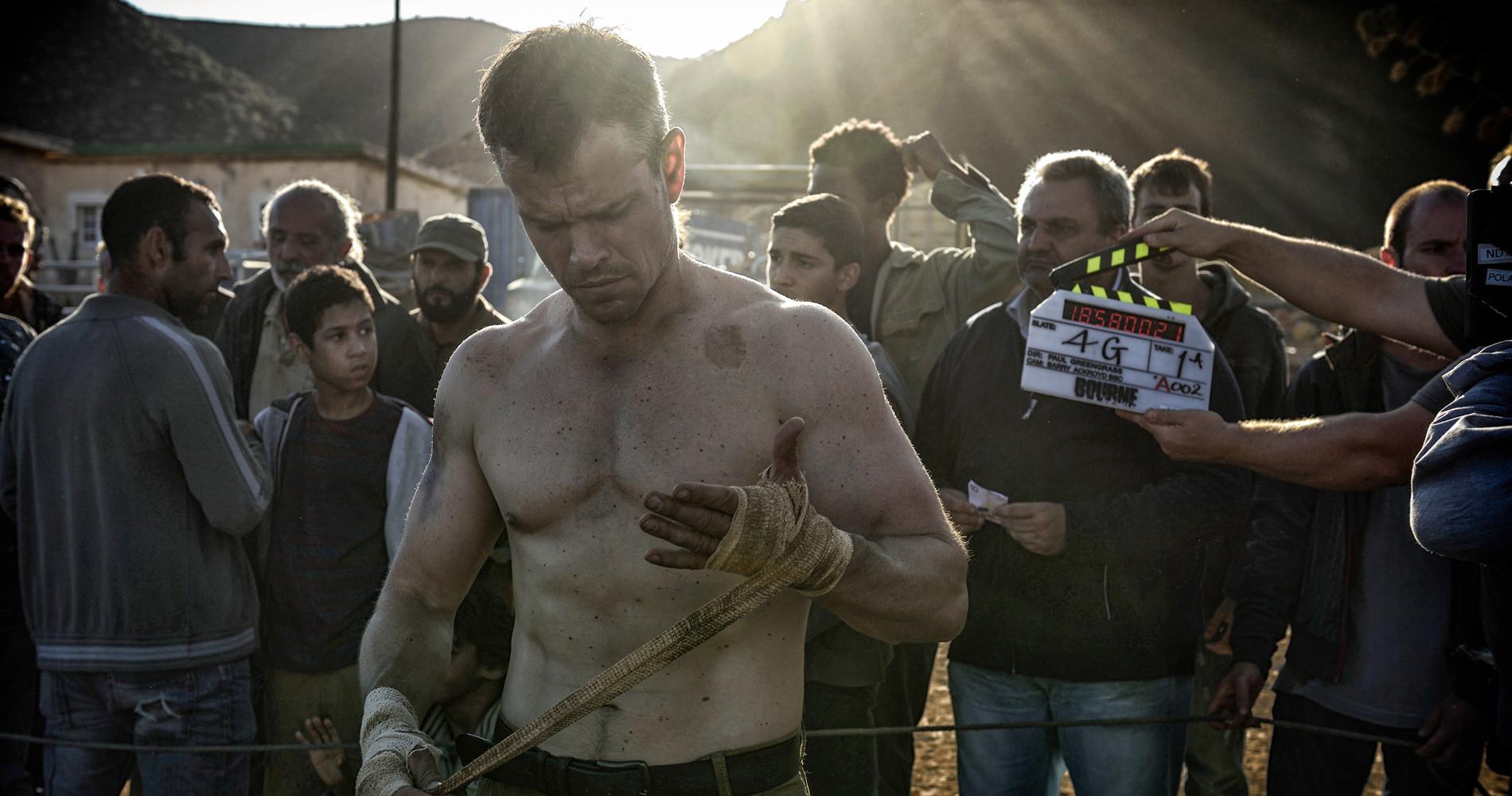Since the release of The Bourne Identity in 2002, Jason Bourne’s origin and motivations have been the obsessive concern of the eponymous action-film series. Who is Jason Bourne? Literally, he’s a brainwashed super-operative once employed by the CIA. Alternatively, you might see him as an unbound superhero, popularized at a time when the war on terror was as new and fascinating as it was, well, terrifying. Bourne’s muscle memory overrides his amnesia. His survival instincts override his bygone loyalty to the dark bureaucrats who trained him. Bourne is paranoia incarnate — not in the quirky and debilitating sense that, say, Mel Gibson embodies in Conspiracy Theory (1997), but rather in the post-9/11 sense: perpetually under surveillance, terrified, and helpless, except for the capacity to inflict massive and indiscriminate damage without understanding why.
Doug Liman directed the first, best Bourne flick, The Bourne Identity, based on the late Robert Ludlum’s 1980 spy novel of the same name. Against predictions, the film was a hit. English director Paul Greengrass has helmed three sequels, The Bourne Supremacy (2004), The Bourne Ultimatum (2007), and now Jason Bourne, the first of these Matt Damon–led films to release on the watch of a president other than George W. Bush. (Tony Gilroy, who wrote the first three Bourne movies, directed the peripheral 2012 film The Bourne Legacy, which stars Jeremy Renner as Operation Outcome operative Aaron Cross in place of Bourne.) Greengrass’s work shows a keen interest in history, politics, and war. And Damon says there’s no Bourne without Greengrass, so here we are, after a quarrelsome hiatus: back at Langley with a fresh perspective on the national security challenges of the 21st century.

Despite their timing, these Bourne movies have, until now, restrained themselves from running head first into the grave policy concerns that defined the American national security apparatus, including the CIA and the NSA, during the post-9/11 Bush administration. Bourne is not 24. But these debates, and the general nat-sec angst of the decade, undoubtedly defined the blockbuster fascination with these movies, which rendered their protagonist, Jason Bourne, not as a sleek and extravagant cad like Mr. Bond, but rather as a shell-shocked victim who’s just looking for answers. (“We always looked at those movies as really about the Bush presidency,” Damon told BuzzFeed last year.)

In these films, the disorienting frequency of geographical jumps (to and from Langley, or from one European capital immediately to the next) illustrates Jason Bourne’s global swiftness as well as the CIA’s reach. In any given city of any given continent, no matter how carefully Bourne or his latest contacts have slipped from the previous scene to the next, the chiefs back at Langley will quickly mobilize a local team to pick up where the last team left off in its great pursuit. Since this pattern of detection and evasion repeats, and repeats, and repeats, in every Bourne film, it’s become a bit mind-numbing in the franchise’s fifth installment, which makes the CIA seem no smarter for all its previous experience chasing Bourne through every NATO country at least twice.
In a series of hacks and dumps of classified information over the past several years, Anonymous, WikiLeaks, and Edward Snowden have emasculated America’s national security apparatus on a massive scale. As if these major breaches weren’t indignity enough, in October an online group of teens known as “Crackas With Attitude” hacked CIA Director John Brennan’s personal AOL email account — filled with classified attachments — by posing as a Verizon customer service representative over the phone. We used to worry that the CIA was omniscient and omnipotent. We now worry that the agency is incompetent and defenseless against whistleblowers, digital jihadis, and hacker savants — and, of course, in the fictional world, one Jason Bourne. And so, for this latest Bourne episode, Greengrass briefs us on a new threat.

In a stupid but understandable grab at contemporary relevance in Jason Bourne, the CIA director blackmails the founder and CEO of Facebook — er, I mean, the founder and CEO of Deep Dream, a fictionalized Facebook.

In the film, reformed hacker Aaron Kalloor (played by Riz Ahmed from The Night Of) launched Deep Dream with some substantial VC investment from the CIA. It’s an arrangement that resembles the real CIA’s secondhand investment in data-mining protocols for social media platforms, and its role in the story also brings to mind the NSA’s PRISM program, which permits direct government access to the servers of Facebook, Google, and Microsoft, among others, though these companies have disputed this and denied involvement.
Here you have the promise of a conflict that the screenwriters, Greengrass and Christopher Rouse, designed to port the Bourne franchise into a new decade of strange challenges. Facebook vs. the CIA, though? That’s a different film altogether.
Greengrass and Rouse have incorporated — but not quite integrated — this broad consumer privacy debate into an otherwise grinding shoot-and-chase caper; Deep Dream has nothing to do with Bourne. His and Kalloor’s interests align only briefly, and they never physically interact. And so we have two men representing different generations advancing two dissimilar conflicts befitting two different movies. Given Bourne’s (wait for it) supremacy in this narrative and in the audience’s esteem, Kalloor’s subplot is something of a rejected transplant.
Unlike the ridiculously varied Bond film franchise to which it is frequently compared, the Bourne series is myopic and chronological to a fault. We’ve all been here before: the same old transit hubs and plazas. We know the Bravo team following Bourne is in for a headache as soon as they turn that corner. You know, maybe, ideally, the CIA is the anchor of these movies instead of their namesake hero, Jason Bourne. To that end: What if the agency hounded Kalloor for the next few movies instead? Then we might have some fresh suspense, a rejuvenated outlook on national security, and a brand-new badass on our hands.
